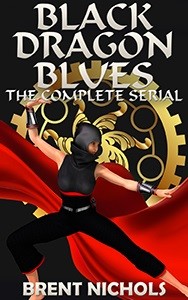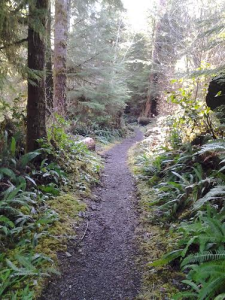I have a deep and abiding personal respect for James A Owen. He’s a talented and successful author, comic books artist, and business person. He’s always been a good friend to me, giving me unconditional support and encouragement in not only my writing, but also my personal life. He taught me about the power of selling your Eggs Benedict and about the need to push yourself until you are just a little bit scared. His actions frequently remind me of the power of kindness and understanding. Now, he’s the one in need of a little help, and I’m for sure going to answer the call!
When first asked to speak to middle schoolers as part of his book tours, James decided that he didn’t want to talk about his Imaginarium Geographica series. If he was given only one hour to speak to the kids, he wanted to talk about what he thought was important in life. About the cumulative power of choice in our lives, on the need to decide what you want and work for it, and on the idea that it’s never too early to start shaping your destiny. This talk, Drawing out the Dragons, was so successful that he’s been asked to repeat it hundreds of times over the years.
When James realized that he couldn’t reach all of his audience personally, he converted the talk into a book. However, the story and the philosophy weren’t done there. He had more to share. And so, he wrote the Meditation’s trilogy to share his amazing life and philosophy of relentless optimism in the pursuit of one’s destiny.
My first experiences with the trilogy came when I heard James’ Drawing Out the Dragons presentation at the Superstars Writing Seminar back in 2013. I then read the first book, by the same name, and enjoyed it greatly. In fact, it is one of the few books I perpetually keep in my phone. Like everyone else, sometimes I just need someone to tell me that they believe in me and inspire me to keep pushing forward. James does this, both in person and in text.
Right now, James as a few days left in the Kickstarter he is using to turn these powerful books into a beautiful hard cover set. I’m a supporter, and hope that y’all would be willing to consider taking the leap of faith needed to help him complete this awesome project. I promise, you won’t regret it!
DRAWING OUT THE DRAGONS: A Meditation on Art, Destiny and the Power of Choice
“James inspires and motivates both the young and young-at-heart with personal stories that share an important belief: that you can choose to lead an extraordinary life if you will just persevere, stay focused on your goals, and believe in yourself.” —LeVar Burton educator, actor, entrepreneur. Drawing Out the Dragons has the power to uplift, inspire, and change your life, and is the first book in The Meditation s series.
THE BARBIZON DIARIES: A Meditation on Will, Purpose and the Value of Stories
“Mythologies are huge, sweeping things. And the grandest stories are those with the widest arcs of triumph and despair. As much as we may want to, we may not be able to avoid the despair – but triumph is a matter of will.” DRAWING OUT THE DRAGONS was written for everyone, but this book is an advanced course in surviving the Refiner’s fire – because some stories are too important not to share, and some stories are too meaningful to hide.
THE GRAND DESIGN: A Meditation on Creativity, Ambition, and Building a Personal Mythology
This book brings together the ideas from the previous volumes in The Meditations series (Drawing out the Dragons and The Barbizon Diaries) about all of the things I know and believe are most important in choosing to live an extraordinary life. Significance is a choice; and the extraordinary can always be chosen. That’s everything. And that’s all.





